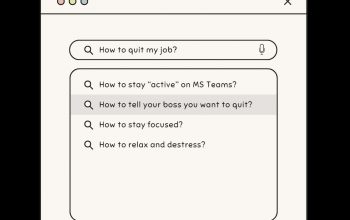Photo Credit: 9to5Google
Why adjusting to the learning curve should not be difficult
Adam Morrison, Business Manager
Online learning has been an unequivocal mess, in my not-so-humble opinion. However, I cannot and will not blame this change on administration or on student response. Instead, it is a fundamental shift in the way schooling is delivered. In this way, the most successful instructors and students have been the ones that have taken the Khan-Academic approach; it is not effective to merely push a University of Toronto (U of T) peg into an internet-shaped hole. What I mean by this is that in my experience, particularly in my Economics of Inequality class, there has been a resignation to the fact that certain now archaic facets of learning – face to face interaction, eye contact, enjoyment – must necessarily not be focused on. I find that my instructor has been remarkably effective in adapting lectures to the online environment.
Collaboration is often critical in developing intuition surrounding a topic, and rote memorization can easily be accomplished by a set of cue cards and determination. Thus, providing pre-recorded lectures and having complementary discussion sessions has been effective. Most importantly, however, my Economics professor has focused on crafting assignments that genuinely reflect the environment one faces: a bedroom desk littered with papers that now must act as a substitute for the relative serenity of EX200. Particularly, allowing for collaboration, problem solving, and dynamic methods of employing what is learnt is far more suitable than a traditional test setting. It is, for one, not limited by the technological constraints many students face. In my case, it appears that Bell Canada likes to periodically turn off internet service to Western Toronto sometime between the start of tests and the finish time. Having malleable guidelines for submission tackles that.
Furthermore, having malleable guidelines for submissions is also a great technique more professors should adopt. Quercus quizzes that penalize one for responding with “1/2” as opposed to “0.5” do nothing other than achieve the utmost pedantry in students, without gauging for any semblance of understanding of the material. Ultimately, it is not a question of whether fairness comes into the fray with material this year, but rather an understanding of the easily made mistakes and unfortunate circumstances that can be accounted for that distinguishes professors in their approach to e-learning.




